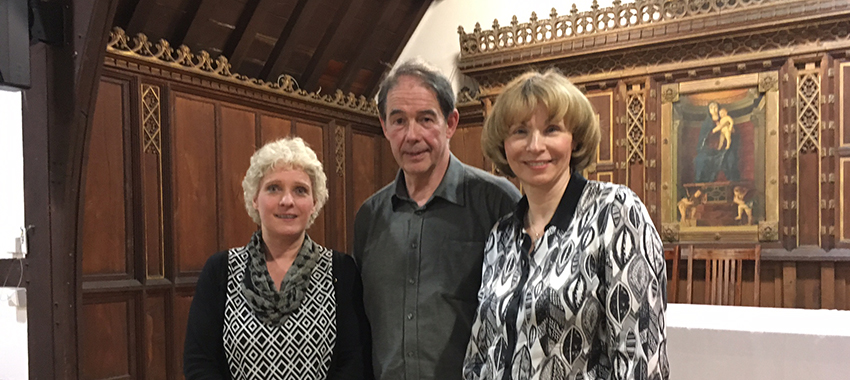
Before speaking at the University’s latest responsible business seminar, he told us about harnessing the energy of businesses to create change, how humans are so dominant on this planet that everything we do is having an impact on the rest of life on earth and why we should stop obsessing about economic growth and focus on quality of life.
What in your view is the role of business in being part of a more sustainable and socially responsible future?
I spent the first half of my life campaigning against business and against irresponsible government and I’ve spent the second half of my life trying to get business to accept its full responsibility to really get much more involved in many of these very difficult issues and to add a little bit of leadership which government – let’s be honest –is finding really hard to provide right now. Consumers and citizens are also a bit ambivalent: they don’t quite know exactly what they should be doing or how urgent it is. So it’s crucial that business is right there, helping to do some of the heavy lifting around these agendas.
Tell us about your involvement in founding Forum for the Future and how its work is helping to bring the sustainability agenda to the heart of the companies you work with.
I went to the Earth Summit in 1992 and somewhat to my surprise I discovered an awful lot of business leaders who were really concerned about these issues and wanted to do something about it, much more than they were doing at the time.
So I came back to the UK and thought: we could work with that energy. Instead of seeing them as the enemy, we could find a way of harnessing that energy. And that’s pretty much what Forum for the Future has done since then, identifying business leaders and progressive companies, enabling them to do much more than they would otherwise be inclined to do and to set a pattern of engagement for society and governments which can then create bigger change than would otherwise happen.
It seems that, for many businesses, sustainability continues to take a back seat to consumer-driven economic growth – what will it take to change that in your view?
It’s not that people are unconcerned about these issues – they are concerned about them. But our model of progress for the last 50 years or more has been underpinned by this notion of economic growth driven by increased consumption. When you’ve had 50 fifty years of one dominant model of progress, it’s really hard getting people to realise that there is a very significant set of consequences attached to that, many of them are negative: personally, environmentally, socially, economically, and that we have to transition our model of progress away from automatic economic growth. This will give us something that’s much more about quality of life. That’s not to say there won’t be economic prosperity – there will. But it means we have to stop obsessing about levels of economic growth and individuals need politicians who will work with them to show there’s much, much more to life than how much stuff you can buy in any one given period.
Your talk here at Winchester looks at the dawn of a new geological era, the Anthropocene, which is defined by humanity’s impact on our planet. Is there still an opportunity for us to take action or are we almost at the point of ‘no turning back’?
If there wasn’t a chance to turn things around then I wouldn’t be here tonight! There are always other things to be doing if you believe it’s too late to create a much better future for the whole of humankind. And I’m still absolutely persuaded that it’s not too late.
The story about the Anthropocene is simply that we’ve moved from a very stable period in the geological history of time on earth, the so-called Holocene, into a period where now the impact of humankind is so big that it actually overwhelms natural systems and natural ways of absorbing the consequences and waste of human society. This is why some geologists are very keen to mark this for what it is and call this the Anthropocene to demonstrate two things. One, we are so dominant on this planet that everything we do is having an impact on the rest of life on earth. Secondly, we now have a responsibility to step up and ensure that we use that dominance in those ecosystems as benignly as we possibly can.
What do you think it will take to motivate businesses and individuals to translate their awareness of the issues into environmental action?
I’m less worried about business. I think business will move because three people make it easier to move. One, their shareholders and that is beginning to happen, particularly around things like climate change. Secondly, governments because they can regulate for higher performance from business, and thirdly consumers. The bit that isn’t working is the consumer - companies are not really getting a lot of encouragement from their consumers to be doing more and that’s the issue.
Finally, the US President has just signed an executive order rolling back Obama-era rules aimed at curbing climate change – what’s your take on that and its potential impact?